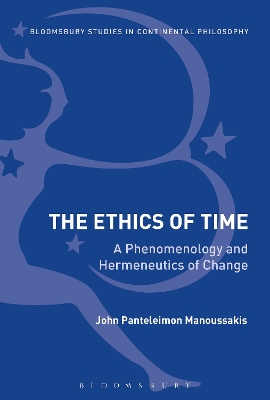Bloomsbury Studies in Continental Philosophy
1 total work
The Ethics of Time utilizes the resources of phenomenology and hermeneutics to explore this under-charted field of philosophical inquiry. Its rigorous analyses of such phenomena as waiting, memory, and the body are carried out phenomenologically, as it engages in a hermeneutical reading of such classical texts as Augustine's Confessions and Sophocles's Oedipus Rex, among others.
The Ethics of Time takes seriously phenomenology's claim of a consciousness both constituting time and being constituted by time. This claim has some important implications for the "ethical" self or, rather, for the ways in which such a self informed by time, might come to understand anew the problems of imperfection and ethical goodness. Even though a strictly philosophical endeavour, this book engages knowledgeably and deftly with subjects across literature, theology and the arts and will be of interest to scholars throughout these disciplines.
The Ethics of Time takes seriously phenomenology's claim of a consciousness both constituting time and being constituted by time. This claim has some important implications for the "ethical" self or, rather, for the ways in which such a self informed by time, might come to understand anew the problems of imperfection and ethical goodness. Even though a strictly philosophical endeavour, this book engages knowledgeably and deftly with subjects across literature, theology and the arts and will be of interest to scholars throughout these disciplines.
